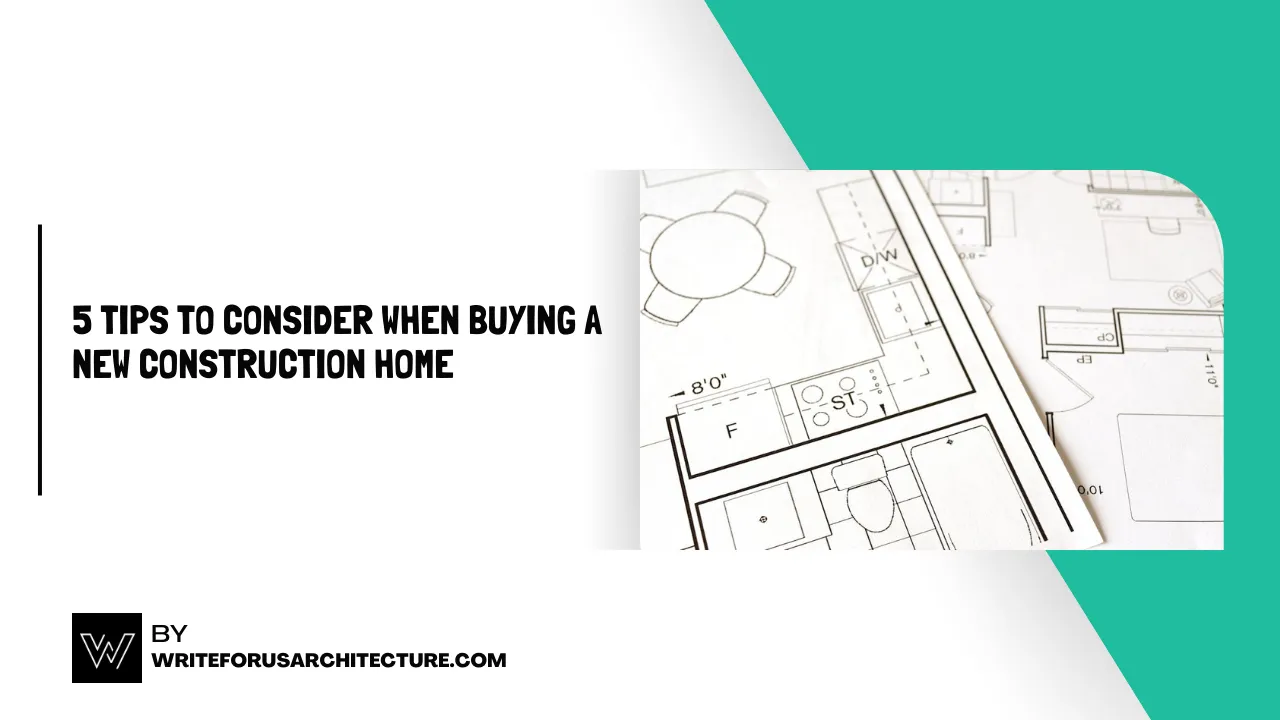Unquestionably, owning a brand-new house appeals to you as the first owner. New-built houses have many benefits, from the fresh paint smell to precisely tailored finishing choices. Still, purchasing a newly built house is somewhat different from purchasing an old house. One should be aware of the particular issues related to new construction acquisitions before marking on the dotted line.
1. Hire a Real Estate Agent with New Construction Experience
Although charming salespeople and staff model houses, keep in mind that these people operate for the builder—not for you. Your purchasing experience might be much improved by working with a real estate agent of your own who specializes in new buildings. Contrary to popular belief, which holds that new house prices are set, a competent realtor will negotiate improvements, closing expenses, and occasionally even the base price. They can help you through the whole building process from beginning to end, point out red flags in builder contracts, and suggest reliable inspectors knowledgeable about new construction. Above all, your agent represents your committed advocate during the last walkthrough and closing, therefore safeguarding your interests all through the transaction.
2. Research the Builder Thoroughly
Before signing any contracts, careful study is crucial as not all builders provide the same caliber of customer service or construction quality. Touring recently finished neighborhoods, interviewing current residents about their experiences, and verifying the builder’s reputation by Better Business Bureau ratings and internet reviews should all be part of due research. To be sure you’re dealing with qualified experts, review key business credentials, including suitable license and insurance coverage. Additionally, look closely at warranty program specifics and how the builder has historically handled construction problems when they arise. Pay very close attention to how older properties have maintained over time and note any recurrent complaints about particular problems or trends in responding to warranty claims.
3. Understand What Comes Standard vs. Upgrades
Rarely does the exquisitely decorated model house reflect what the base price entails since builders purposefully highlight enhanced choices to attract consumers into more expenditure. Ask for a thorough list of standard features to understand exactly what comes with the advertised price. Get formal quotes for any necessary improvements to prevent later on in the process unanticipated expenses. Find which enhancements might be done post-construction at perhaps less cost to help minimize budget shocks while planning your customizations. Once the community is formed, quality multifamily supplies become crucial for property managers in effectively maintaining common spaces in bigger new building projects with many units.
4. Get Independent Inspections Throughout Construction
Never ignore inspections simply because a house is brand-new; structural issues ranging from minor problems to significant ones abound in freshly constructed homes. Plan a pre-drywall inspection so the inspector may examine key components such as plumbing, electrical wiring, and structure that walls will shortly hide before walls are closed. Early examinations often uncover flaws that could otherwise be undetectable until years later, causing significant problems. Thousands in future repairs and frustrations might be avoided with these precautionary steps. Follow up with a comprehensive last inspection to make sure all previously mentioned issues have been satisfactorily addressed, and no new ones have emerged before closing.
5. Understand the Timeline and Possible Delays
New building seldom ends exactly on time as supply chain issues, weather delays, labor shortages, and permit approvals can all greatly impact completion timetables. Get recorded approximations of completion durations to create unambiguous expectations from the beginning. Understanding what legally happens when delays develop may help you to be ready for many possibilities. Keep flexible backup plans for your current living situation to prevent housing crises. Think of including specific contract terms addressing major delays with obvious remedies until closing is almost here; avoid creating permanent moving dates. Usually include language allowing for delays without penalty, builders often let you negotiate measures like payment for extended temporary housing expenditures should delays surpass a particular level.
Conclusion
Buying a new build house lets you own a residence created to modern standards using modern designs and technology. You may negotiate the process effectively by selecting a knowledgeable real estate agent, doing extensive builder research, knowing the actual expenses, making appropriate inspection investments, and becoming ready for possible timetable swings. Your new building acquisition, with careful design and due investigation, can provide the move-in ready dream house you desire free from unanticipated expenses or hassles.
Also Read:

